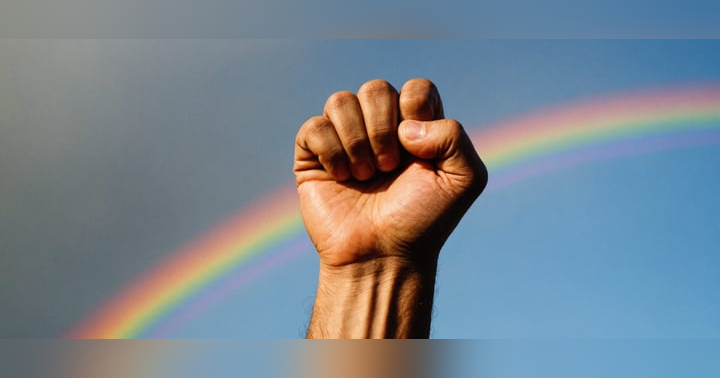Building Genuine Self-Confidence for Gay Men: Embracing Vulnerability, Mindfulness, and Self-Acceptance

“If I Have the Choice Between Disappointing You and Myself, I'm Probably Gonna Pick You.”
Many gay men pour a tremendous amount of effort into looking “attractive.” We hit the gym religiously, splurge on stylish clothes, perfect our haircuts, and follow skincare routines to achieve that flawless glow.
But while appearance can be captivating, many argue that true confidence is the most attractive quality of all. Yet, for many of us, building genuine self-confidence is an uphill battle. Growing up feeling different or experiencing rejection often leaves deep-rooted self-doubt in its wake. To cope, we might craft a façade of confidence—projecting an image of a life that’s glamorous and exciting, even if it doesn’t feel authentic.
This theme has come up time and again: perfectionism, self-deprecating humor, body image struggles, internalized homophobia—you name it. But to live a more fulfilling life, we need to cultivate real, unshakable self-confidence, one rooted in self-acceptance rather than external validation.
Building Genuine Self-Confidence: Lessons for Gay Men
Self-confidence, as defined by Oxford Languages, is a trust in one's abilities, qualities, and judgment. For many gay men, developing this trust can be uniquely challenging, shaped by societal pressures, internalized homophobia, and experiences of rejection. Yet, building genuine self-confidence is possible—and it starts with aligning with your intuition and fostering a strong sense of self.
As Tillie Lee eloquently described, self-confidence evolves over time, influenced by life’s ups and downs. The lessons she’s learned through her own journey as a photographer, yoga instructor, and businesswoman can be adapted into actionable steps for gay men to follow in building lasting self-confidence:
- Trust Your Intuition
Start by tuning into your gut feelings and resisting the urge to second-guess every decision. Just like a muscle, intuition strengthens with practice. Trusting yourself becomes easier the more you do it. - Set Boundaries
Prioritize your emotional well-being by setting boundaries that protect your mental health and allow you to focus on what matters most. Boundaries are not about being selfish, but about respecting your own needs. - Reframe Failures as Opportunities for Growth
Setbacks and criticism are part of life. Rather than letting them erode your confidence, view them as opportunities to learn and improve. Resilience in the face of adversity builds a more robust sense of self. - Filter Out External Opinions
Unsolicited advice and societal expectations can cloud your sense of self. Focus on trusting your instincts and valuing input from those who genuinely support your growth. Not all opinions deserve your attention. - Seek Professional Support
Therapy is an invaluable tool for developing self-confidence. A professional can help you challenge negative thought patterns, navigate self-doubt, and cultivate a healthier relationship with yourself. - Celebrate Your Uniqueness
True self-confidence thrives when you embrace your individuality. Being the "main character" in your life isn’t about seeking validation from others; it’s about honoring your unique journey and what feels authentic to you.
Vulnerability and Confidence: Finding Strength in Self-Acceptance
For many gay men, the balance between vulnerability and confidence is a delicate yet vital aspect of self-discovery. Vulnerability involves laying bare insecurities, imperfections, and emotional truths, while confidence requires self-assurance, resilience, and an unwavering sense of self-worth. At first glance, these qualities might seem like opposites; however, they are deeply interconnected. Vulnerability opens the door to authenticity, and confidence turns that authenticity into empowerment, creating a foundation for meaningful connections and personal growth.
This balance manifests in various areas of life. In intimate relationships, vulnerability can mean sharing insecurities or past traumas with a partner, trusting that they will respond with love and understanding. Confidence, in turn, helps maintain self-worth even when doubts or fears arise, ensuring the foundation of the relationship remains strong. Similarly, situations that place someone in the spotlight, like a boudoir photoshoot, require letting go of self-criticism. Trusting the process and embracing the moment can allow individuals to see themselves in a new light, finding beauty in their uniqueness.
Building this equilibrium often begins with preparation and self-care. Physically, it could mean choosing outfits that enhance comfort and confidence, practicing rituals that promote well-being, or seeking professional guidance in spaces that foster safety and respect. Mentally, it involves developing a mindset that acknowledges imperfections without judgment. Rather than succumbing to self-criticism, individuals can reframe their thinking to focus on their strengths and embrace their individuality.
Confidence isn’t about perfection. It’s about recognizing that perceived flaws are part of what makes you human, and vulnerability teaches that being open about these imperfections is not a weakness but a form of strength. Together, these qualities create a pathway to self-acceptance.
Mindfulness: A Powerful Tool for Building Confidence
Mindfulness can be a transformative practice for gay men seeking to balance their lives and build lasting self-confidence. At its core, mindfulness is the practice of being present in the moment, free from judgment or distraction. It nurtures self-awareness and acceptance, allowing individuals to move past insecurities and step into a more confident, self-assured version of themselves.
The relationship between mindfulness and confidence is rooted in silencing the noise of self-doubt. Many insecurities are amplified by overthinking or comparing oneself to others, a cycle often exacerbated by societal pressures. Mindfulness shifts the focus inward, allowing individuals to appreciate their strengths and embrace vulnerabilities without fear of judgment.
Here are some simple ways to incorporate mindfulness into daily life:
- Focus on Your Breath
When overwhelmed, take a deep breath—inhale for four counts, hold, then exhale fully. Repeat a few times to center yourself in the present. - Engage Your Senses
Notice the sounds around you, the feel of the sun on your skin, or the smell of your favorite coffee. These sensory experiences help ground you in the present. - Practice Mindful Movement
Activities like yoga or walking promote mindfulness. Focus on your body’s movements, appreciating what it can do for you. - Limit Multitasking
Multitasking divides your attention. Focus on one activity at a time to fully experience the moment and reduce distractions.
Mindfulness not only helps you live in the moment but also fosters a compassionate relationship with yourself. For gay men, it can be a liberating practice, helping break free from societal pressures and negative self-talk.
Confidence vs. Arrogance: Striking the Right Balance
The line between confidence and arrogance can be fine, especially in a society where gay men often face heightened scrutiny. Striking this balance is crucial to fostering self-respect without alienating others. Confidence is an inner belief in your abilities and worth, radiating authenticity and inspiring trust. Arrogance, on the other hand, seeks validation through superiority and often alienates others.
For gay men, the balance between confidence and arrogance carries added weight. In a world that has historically marginalized LGBTQ+ individuals, projecting confidence can be a radical act of self-empowerment. Yet, fostering humility ensures this confidence is inclusive and builds stronger connections.
True confidence uplifts; arrogance seeks to elevate oneself at the expense of others. Recognizing this difference helps gay men navigate social interactions with humility, ensuring that pride doesn’t slip into ego.
To balance confidence with humility, consider the following strategies:
- Celebrate Accomplishments Authentically
Share your successes in ways that inspire others, framing them as learning experiences rather than displays of superiority. - Check Your Motivation
Ask yourself whether you’re dressing, speaking, or posting on social media for your own joy or for the approval of others. Authenticity shines brightest when aligned with personal values. - Practice Gratitude
Gratitude grounds you and helps balance confidence with humility. Acknowledge the support and lessons that contributed to your growth. - Let Actions Speak
Confidence doesn’t need constant reinforcement. Let your character and actions reflect your worth, rather than relying on words or overt displays. - Be Mindful of Others
Celebrate others’ achievements and practice active listening. Confidence becomes contagious when it creates space for everyone to thrive.
Practicing Self-Compassion for Lasting Confidence
In a world that often imposes unrealistic standards, self-compassion is a vital practice for gay men to navigate life with resilience and confidence. It helps break free from cycles of self-criticism, allowing for a healthier relationship with yourself.
Self-compassion involves treating yourself with kindness, especially during moments of failure or doubt. It includes three key elements:
- Self-Kindness
Recognize that everyone makes mistakes and deserves compassion, not harsh judgment. - Common Humanity
Understand that struggles and imperfections are part of the human experience, not something unique to you. - Mindfulness
Observe negative thoughts without over-identifying with them, allowing space for reflection and growth.
Avoiding Negative Self-Talk
Negative self-talk is a common barrier that many gay men face, often stemming from societal expectations, internalized homophobia, discrimination, or pressure to conform to idealized standards of beauty or success. Phrases like "I'm not good enough" or "I hate this about myself" can become automatic, reinforcing self-doubt and undermining self-worth.
However, gay men can cultivate a healthier, more compassionate internal dialogue by following these strategies to help break the cycle of negative self-talk:
- Notice and Reframe Critical Thoughts
Awareness is the first step. When you catch yourself being self-critical, reframe the thought. For example, replace "I'm so stupid" with "I made a mistake, and that's okay." This shift turns self-criticism into constructive reflection. - Eliminate Extreme Language
Words like "hate" or "always" can amplify negativity. Replace them with more balanced expressions, such as "I'm not feeling my best today" instead of "I hate how I look." This makes negative thoughts feel less permanent. - Embrace Imperfection
Setbacks are part of being human. Viewing challenges as normal, not flaws, reduces isolation and helps you accept that mistakes don’t define your worth. - Practice Self-Kindness Daily
Incorporate small acts of kindness, like relaxing or writing affirmations. Regularly practicing self-kindness builds resilience and strengthens your relationship with yourself. - Be Mindful of Triggers
Identify situations or environments that fuel negative self-talk. Being aware of these triggers allows you to manage them, whether by limiting exposure or practicing mindfulness.
Building a Confident, Compassionate Life
Building lasting self-confidence is an ongoing journey, one that requires patience, kindness, and self-compassion. Embracing challenges with kindness toward yourself makes it easier to navigate life’s ups and downs. Confidence isn’t about avoiding struggles; it’s about trusting yourself to overcome them.
True confidence comes from within, rooted in intuition and self-acceptance. It isn’t about seeking validation from others, but about aligning with what feels right for you. By fostering mindfulness, self-compassion, and a balanced approach to vulnerability and strength, gay men can build lasting confidence that empowers them to thrive in an often challenging world.
And remember. Every day is all we have, so you've got to make your own happiness.
For more information on this topic, listen to Episode 50. Self-Love Tough Love (with Tillie Lee).
Tune into your favorite podcast player every Tuesday for new episodes of A Jaded Gay.


















